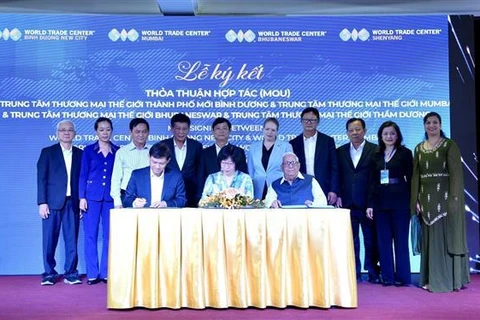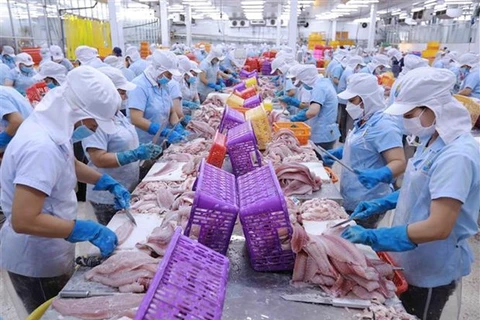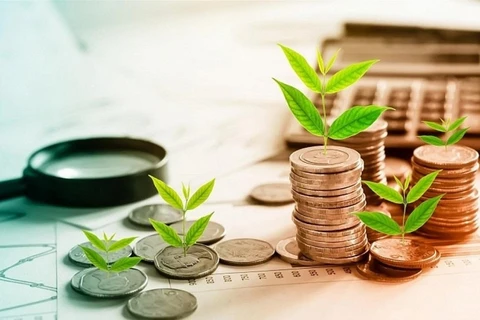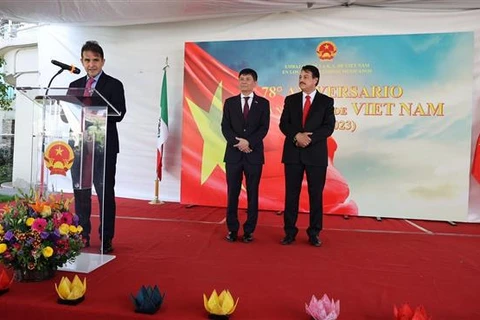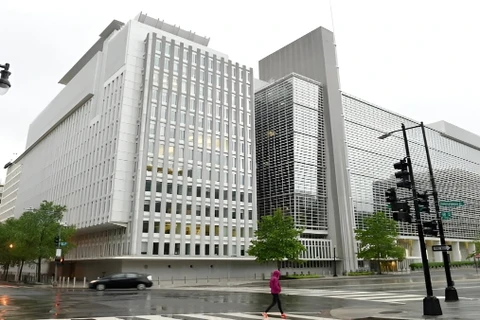 Dr Le Truong Son, Rector of the HCM City University of Law, addresses the conference on October 19. (Photo: VNA)
Dr Le Truong Son, Rector of the HCM City University of Law, addresses the conference on October 19. (Photo: VNA) The event, held by the HCM City University of Law and France’s Université de Tours, attracted over 40 experts from 12 countries, namely Vietnam, India, Canada, the Republic of Korea, Indonesia, Morocco, Russia, Japan, France, Singapore, Thailand, and China. It was also attended by representatives of agencies, organisations, and domestic and international businesses.
Dr Le Truong Son, Rector of the HCM City University of Law, said Asia-Pacific, considered the economic engine of the whole world, gathers dynamic and strong economies with fast growth, attractive markets, and young and industrious workforces.
Asian-Pacific countries, holding strategic geo-political locations, have been the destinations of the pivot strategies of many nations worldwide over the past several decades. Those strategies are not limited to trade or investment but also designed on the basis of calculations on many other aspects, including diplomacy and politics.
The pivot to Asia-Pacific strategies have been influencing the policies and law of countries in and outside the region. In particular, to implement those strategies, trade liberalisation and investment protection agreements, including global and bilateral ones, have been signed among partners in the region, as well as between the region and partners outside, Son noted.
Those agreements and their implementation are helping with security, sustainable development, economic growth, environmental protection, and human rights protection at national, regional, and international levels, and support for developing countries. However, the problem is how to ensure the enforcement of those deals proves truly effective in reality and protects the interests of all enterprises as well as the rights of vulnerable groups, according to the rector.
Prof. Michel Trochu, former legal expert at the European Parliament, said the European Commission has seriously considered a pivot to Asia-Pacific strategy. The EU has expanded cooperation and stepped up the negotiation and signing of new free trade agreements with important partners in the region such as the Republic of Korea (in 2015), Japan (2019), Singapore (2019), and Vietnam (2020).
Likewise, economic and political changes have also boosted Russia’s enhancement of connectivity and cooperation with Asian-Pacific countries, he added.
At the event, participants discussed the differences and similarities between the Regional Comprehensive Economic Partnership (RCEP) and the ASEAN - China Free Trade Agreement (ACFTA), along with the Indo-Pacific Economic Framework for Prosperity (IPEF) and the RCEP’s impacts on the Greater Mekong Sub-region.
They also looked into the attractiveness of East Asian countries, trade and investment potential and opportunities in the Great Mekong Sub-region, and the pivot to Asia policy of Russia./.
VNA
